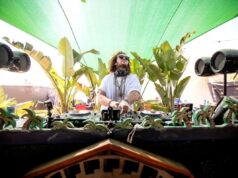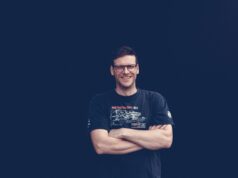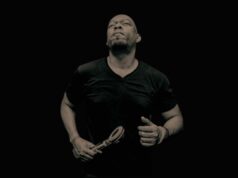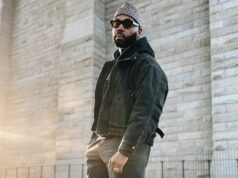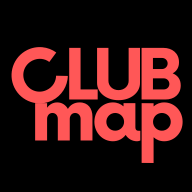• Tell us about your latest gig!
I just got back from performing at the World Economic Forum in Davos, Switzerland for Wall Street Journal and Semafor. It was my third time DJ’g at the conference, somehow it gets more special and surreal each year.
• Can you tell us about your background and how you got into music?
As a child, I loved to dance and perform. I danced competitively throughout my teenage years. But really, I fell in love with music when I got to college here at NYU in NYC. I started sorta seeing this boy who was the frontman of a 70s-inspired rock & roll band, and that’s when I was properly introduced to the music from that era. Bob Dylan. Tom Petty. Bruce Springsteen. These are the fellas who ushered me down the rabbit hole to what would become a life led by music.
• Who are your biggest musical influences? How have these influences shaped your sound and approach to music production?
Bob Marley. His music is so groove-driven but also meaningful. Form and content flawlessly harmonized. His sound stands up for something. He brought the healing wonder of reggae to the mainstream, testifying to the unifying power of music. Making music that’s about something is the approach that I take into the studio, crafting dancefloor-fillers that feel drawn from the world’s farthest corners, a diversity of influences coming together. In the dance music space today, I love and look up to producers like Francis Mercier, Keinemusik, Dario Nunez, GROSSOMODDO, Sofi Tukker, DJ Chus, Moojo, and MoBlack.
• What has been the highlight of your career so far? Do you have any good tour stories to share? And what was the worst job you ever had?
There have been some major pinch me moments. I’d rank my time on Duran Duran’s tour towards the top. I’ve had the amazing opportunity to open for them three times over the last couple of years, and play stadiums in my hometown, Toronto. It’s been a trip, playing arenas and the like, and getting to open up for a band so iconic and so loved by so many.
As far as the worst job, oof.. there have been some rough moments over the years, especially when I was first starting out DJ’g, nearly a decade ago… sometimes stuck in dark corners for hours, playing for no one. I’ve definitely paid my dues. Also, this is a male-dominated business, and the patriarchy is alive and well, so that’s certainly something I navigate. Not all that long ago, the CEO of a venue I performed at grabbed my butt on the way out. It’s pretty crazy sometimes what people will try to get away with.
• Can you share some of the challenges you’ve faced in your career and how you overcame them?
I’ve moved around a lot, and that comes with challenges because DJ’g is a sceney business. Almost every artist comes up somewhere. You need to be in one place in order to break out. I started in London, England, and then moved over back to NYC and had to start again from scratch. And I’m a gypsy soul, so I struggle to stay put… travelling, and playing music in foreign countries is truly my favourite thing to do, but it makes it tricky to build, because I’m never really ‚here.‘ I try to just lean in, and keep faith, the opportunities that are meant for me are coming my way.
• How would you describe your sound to someone who has never heard your music? And what would you be doing if you weren’t a musician?
HIGH VIBES. I play music, regardless of genre, that makes you feel good. My sound toys with elements of the familiar – vocal hooks and grooves you know – but also introduces you to fresh sounds and foreign influences. There’s plenty of darkness and negativity out there in the world, I don’t need to put more of any of that out. I want to spread love and light, that’s all.
• Can you walk us through your creative process when writing and recording a new track?
For me, a fresh idea usually starts with a sample I’ve fallen in love with, or sometimes just a stack of references. I usually start by working on the rise and the drop, that’s my favourite part of any dance record, so that’s where I like to begin. Once that’s feeling nice and epic, I strip it back and work on the intro/ first verse, and from there, the break. Then I’ll go back in for the second drop, and find a way to make it bigger, better, all the more dramatic and delicious.
• Can you tell us about any upcoming projects or collaborations you’re working on?
I’ve been in and out of the studio a lot these past 8 months, working with different musicians. I’ve got some groovy new records to share, coming out later this year.
• What do you do when your equipment fails?
Stay calm. That’s the trick. It’s almost always one button, or one cable that needs to be swapped out. So breathe, focus, troubleshoot, and trust your knowledge.
• Which track would play during your walkout for a boxing match?
„Rock n Roll“ – Executive Slacks
• What do you think is the most important music equipment invention of all time – and why?
The phonograph: it marks the beginning of recorded music. Before it, people could only listen to music live. The phonograph made it possible for people to listen to music everywhere, allowing for an individualized listening experience separate from the performer. That’s the thing I maybe love most about music .. you can’t touch it, smell it, see it, hold it, but you feel it, and it can change you, in body, soul and spirit.
• What advice would you give to someone trying to make it as a professional musician?
Be clear about your point of view. If you’re going to be an artist, you need to give something to the world. It’s not just about you, but about what you can offer. And so long as you keep your creativity grounded in generosity, you’ll be good.
LINKS
PICTURE: photo credit – Christoph Schieder / Berlin Science Week @ Holzmarkt 2023



